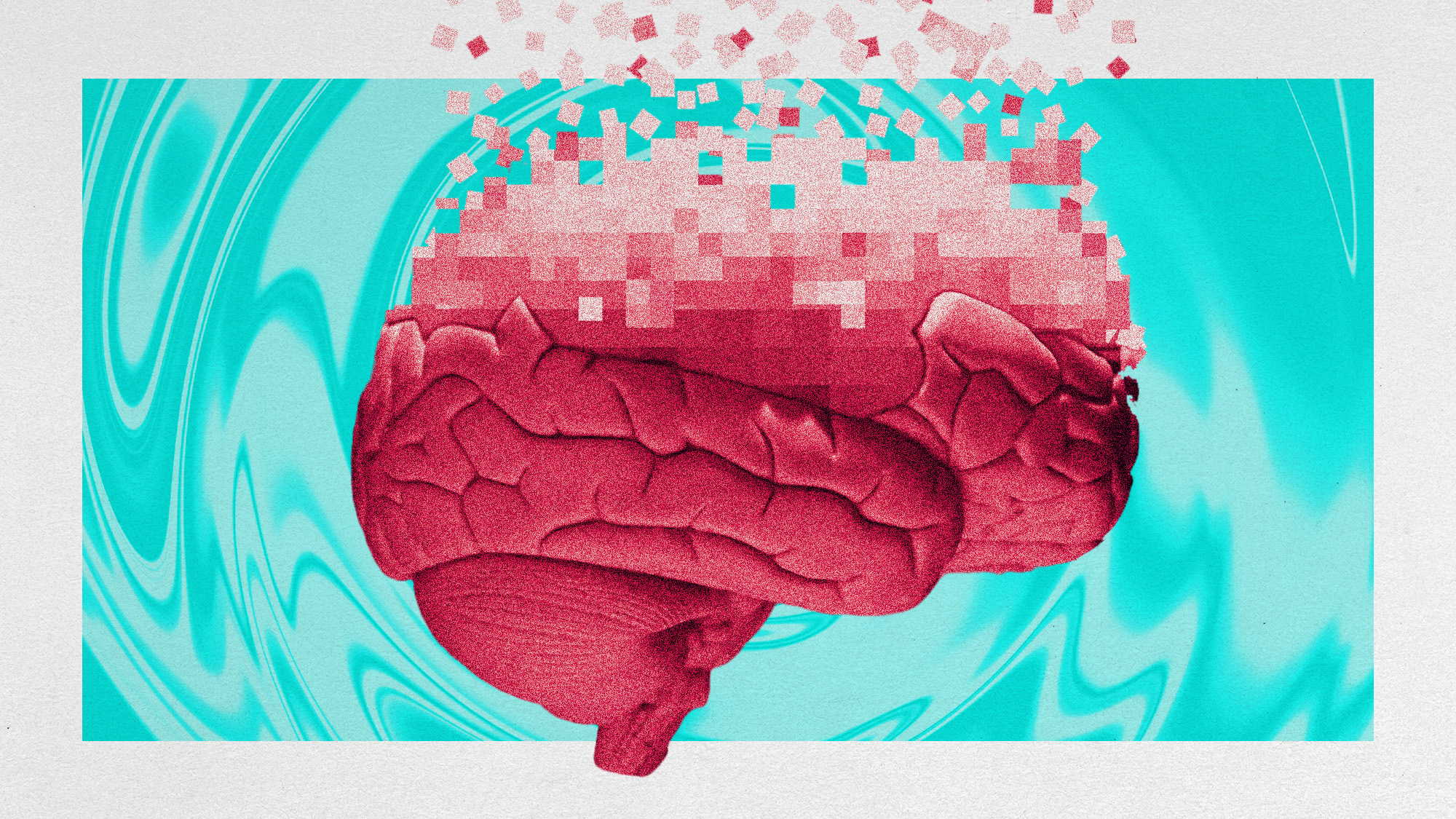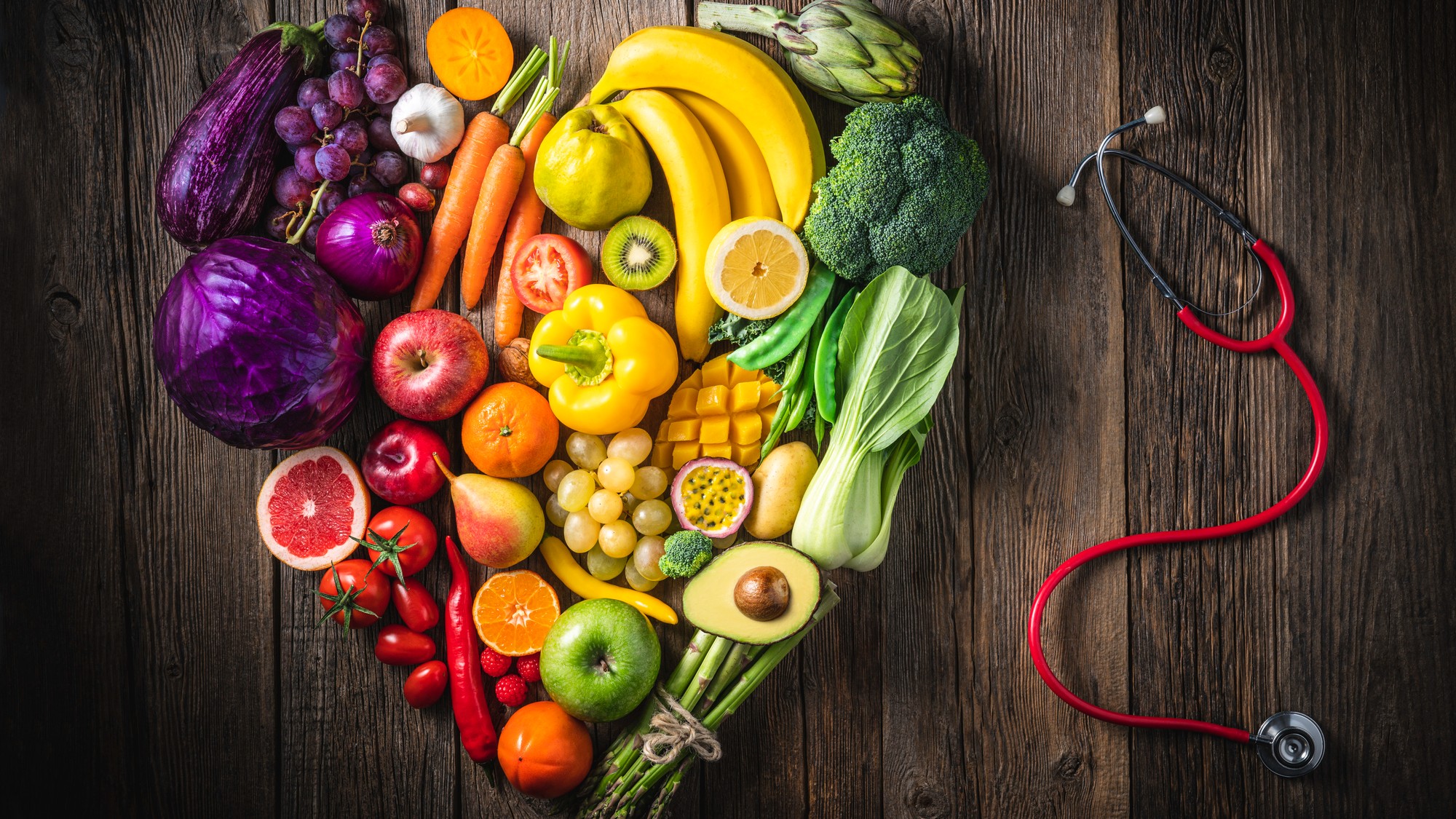'TikTok brain' may be coming for your kid's attention span
What happens to kids' brains when they binge bite-sized videos?


A free daily email with the biggest news stories of the day – and the best features from TheWeek.com
You are now subscribed
Your newsletter sign-up was successful
The TikTokification of social media has created a landscape that caters to shorter videos, which is likely having a profound effect on the attention spans of some of our most impressionable communities. The platform has been heavily scrutinized and even targeted for a potential ban over national security concerns. However, early studies also indicate that TikTok could hurt the attention span of its users, especially the kids and teens who populate the app.
The platform hosts an endless stream of bite-size videos, delivering entertaining content in as little as 15 seconds. Young people who binge-watch short-form content like TikTok or Instagram Reels find it harder "to participate in activities that don't offer instant gratification," Julie Jargon said at The Wall Street Journal, an effect she called "TikTok brain."
What happens to our brains when we get hooked on short-form videos?
The pursuit of a reaction in the reward system in your brain is what drives endless scrolling through TikTok videos. The platform is a "dopamine machine," John Hutton, a pediatrician and director of the Reading & Literacy Discovery Center at Cincinnati Children's Hospital, said to Jargon. Dopamine is a neurotransmitter that the brain releases when it expects a reward. "A flood of dopamine reinforces cravings for something enjoyable, whether it's a tasty meal, a drug or a funny TikTok video," Jargon said in another piece for the Journal.
The Week
Escape your echo chamber. Get the facts behind the news, plus analysis from multiple perspectives.

Sign up for The Week's Free Newsletters
From our morning news briefing to a weekly Good News Newsletter, get the best of The Week delivered directly to your inbox.
From our morning news briefing to a weekly Good News Newsletter, get the best of The Week delivered directly to your inbox.
The feelings of pleasure dopamine produces will motivate you to seek more. "When you scroll and hit upon something that makes you laugh, your brain receives a hit of dopamine," neuropsychologist Dr. Sanam Hafeez said to Bustle. "When you see something you don't like [on TikTok], you can quickly pivot to something that produces more dopamine." Repeating this cycle could eventually train your brain to crave the rewards you get from shorter content.
Research into how TikTok specifically affects the brain is in the early stages, but there has been a growing interest among scientists. Findings from a 2023 study published by Guizhou University of Finance and Economics in China and Western Michigan University suggest that videos on TikTok and similarly succinct YouTube Shorts engage users through "short bursts of thrills," which can lead to the development of addictive behavior. That study focused on a sample of college students and their motivations for excessively using short-form video apps.
Three years ago, the Science Times cited a 2019 study published in Nature Communication that suggested our "collective attention span" appeared to be narrowing due to how quickly people consumed content on social media. While the study did not "explicitly talk about TikTok," the Science Times said it was "a relevant study that suggests the app has genuinely affected people's brains."
The "notably reduced attention span" of TikTok brain is often compared by neuroscientists to the "brief, approximately five-second attention span of a goldfish," neuroscience expert Patrick Porter said to Pure Wow. The phenomenon can manifest as a "diminished patience for tasks that are longer and more complex." TikTok may even be changing the way people use their brains: Unlike previous generations who "tended to store specific information in memory," young adults are increasingly treating their brain more like a search engine than a traditional fact retrieval system," Porter said. That shift can be attributed to the fact that information is so broadly and readily available on the internet. As a result, young people's brains are "becoming more adept at remembering how to access information" rather than the "specific details of the information itself."
A free daily email with the biggest news stories of the day – and the best features from TheWeek.com
Why are children's attention spans particularly at risk?
When young people do activities that require "prolonged focus," like reading, they use "directed attention," a function that begins in the prefrontal cortex, "the part of the brain responsible for decision making and impulse control," Jargon said.
"Directed attention is the ability to inhibit distractions and sustain attention and to shift attention appropriately," Michael Manos, the clinical director of the Center for Attention and Learning at Cleveland Clinic Children's, said to the Journal. "It requires higher-order skills like planning and prioritizing." Kids generally have difficulty using directed attention because the prefrontal cortex does not fully develop until age 25. But TikTok's constantly changing environments do not require that level of sustained attention. If kids' brains get used to constant changes, "the brain finds it difficult to adapt to a nondigital activity where things don't move quite as fast," Manos said.
Young people experience "a cultural indoctrination" that encourages them to "grow used to and even prefer these kinds of highly stimulating fast scene shifts," Gloria Mark, the author of "Attention Span: A Groundbreaking Way to Restore Balance, Happiness, and Productivity," said to Wired. As a result, it is getting harder for them to pay attention to things that do not offer instant gratification. "There are so many forces banding together that are just reinforcing people, especially young people, to have short attention spans," Mark added.
Are social media companies trying to address the issue?
Regarding younger users, some social media companies have tried to implement features to limit their potential to overuse the apps. TikTok has already made changes to help teens manage their time scrolling through videos. The platform does not allow push notifications after 9 p.m. for users aged 13 to 15, and periodically creates videos to remind users to pause their scrolling, go outside, or have a snack.
While YouTube videos are generally longer than TikToks, the platform introduced a feature called YouTube Shorts, which has content that originally maxed out at 60 seconds; recently, the maximum length was extended to three minutes. Google, which owns YouTube, already has features to limit use for people under 18, such as turning off autoplay (which will hop you from one video to the next) for kids and teens. Reminders to take a break or go to sleep are also on by default for users aged 13 to 17. YouTube spokeswoman Ivy Choi told the Journal that while research on how short-form content affects young people is just beginning, the company is closely monitoring the outcomes. YouTube will continue to "refine the Shorts experience to better meet the needs of young people and their families," Choi said, "including by partnering with third-party experts to inform our work."
Theara Coleman has worked as a staff writer at The Week since September 2022. She frequently writes about technology, education, literature and general news. She was previously a contributing writer and assistant editor at Honeysuckle Magazine, where she covered racial politics and cannabis industry news.
-
 How the FCC’s ‘equal time’ rule works
How the FCC’s ‘equal time’ rule worksIn the Spotlight The law is at the heart of the Colbert-CBS conflict
-
 What is the endgame in the DHS shutdown?
What is the endgame in the DHS shutdown?Today’s Big Question Democrats want to rein in ICE’s immigration crackdown
-
 ‘Poor time management isn’t just an inconvenience’
‘Poor time management isn’t just an inconvenience’Instant Opinion Opinion, comment and editorials of the day
-
 ‘Zero trimester’ influencers believe a healthy pregnancy is a choice
‘Zero trimester’ influencers believe a healthy pregnancy is a choiceThe Explainer Is prepping during the preconception period the answer for hopeful couples?
-
 Stopping GLP-1s raises complicated questions for pregnancy
Stopping GLP-1s raises complicated questions for pregnancyThe Explainer Stopping the medication could be risky during pregnancy, but there is more to the story to be uncovered
-
 RFK Jr. sets his sights on linking antidepressants to mass violence
RFK Jr. sets his sights on linking antidepressants to mass violenceThe Explainer The health secretary’s crusade to Make America Healthy Again has vital mental health medications on the agenda
-
 Nitazene is quietly increasing opioid deaths
Nitazene is quietly increasing opioid deathsThe explainer The drug is usually consumed accidentally
-
 The plant-based portfolio diet invests in your heart’s health
The plant-based portfolio diet invests in your heart’s healthThe Explainer Its guidelines are flexible and vegan-friendly
-
 Tips for surviving loneliness during the holiday season — with or without people
Tips for surviving loneliness during the holiday season — with or without peoplethe week recommends Solitude is different from loneliness
-
 More women are using more testosterone despite limited research
More women are using more testosterone despite limited researchThe explainer There is no FDA-approved testosterone product for women
-
 Doctors sound the alarm about insurance company ‘downcoding’
Doctors sound the alarm about insurance company ‘downcoding’The Explainer ‘It’s blatantly disrespectful,’ one doctor said
